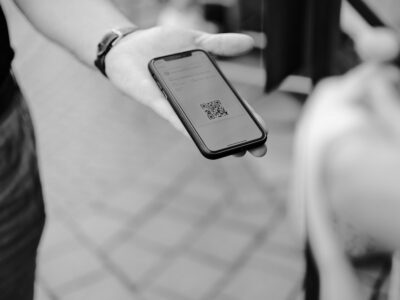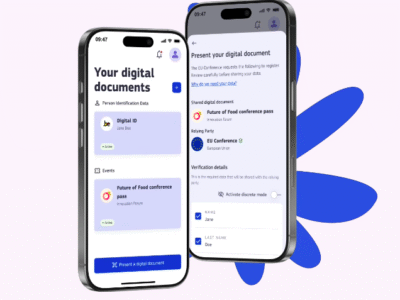The simple form of Bitcoin goes like this. There’s a big public list of addresses, each with a unique label that looks like random numbers and letters, and some balance of Bitcoin in it. As an example, the address that received the first Bitcoin and presumably belonging to Satoshi Nakamoto has the label “1A1zP1eP5QGefi2DMPTfTL5SLmv7DivfNa” and a balance of 68.6 Bitcoin. The address acts as a public key.
If I “own” those Bitcoin, what that means is I possess the private key corresponding to that address (just like a password needed to access the account). Since I have the private key, I can send you a Bitcoin by signing a message to you with my private key. You can then check that signing against my public key and against the public list of addresses and Bitcoin balances. That information is enough for you to confirm that I control the Bitcoin that I am sending you, but not enough for you to figure out my private key and steal the rest of the Bitcoin. That kind of means I can send you a Bitcoin without you trusting me, or me trusting you, or either of us trusting a bank to verify that I have the money. The combination of the public address and the private key is enough to define a coin.
You’ll notice that all we have done here is exchange a message. The message changed a (public) ledger of who holds what. But who maintains that? The rough answer is the Bitcoin network (thousands of people who use Bitcoin and run its software on their computers) keeps the ledger, collaboratively and redundantly. There are thousands of copies of the ledger; every node on the network has its own list of how many Bitcoin are in each address.
We then do a transaction when I send you a Bitcoin. We don’t just do it privately; we broadcast it to the entire network so everyone can update their list. If I send you a Bitcoin from my address, and my signature on the transaction is valid, everyone will update their ledgers to add one Bitcoin to your address and subtract one from mine.
READ: Crypto Terms to Know
There is a financial incentive for everyone to be honest: if everyone is honest, then this is a working payment system that might be valuable. If lots of people are dishonest and put fake transactions in their ledgers, then no one will trust Bitcoin and it will be worthless. This is a standard approach in crypto: Crypto systems try to use economic incentives to make people act honestly, rather than trusting them to act honestly.
This is simply how Bitcoin works.
This content was originally written by Matt Levine for Bloomberg Businessweek.






